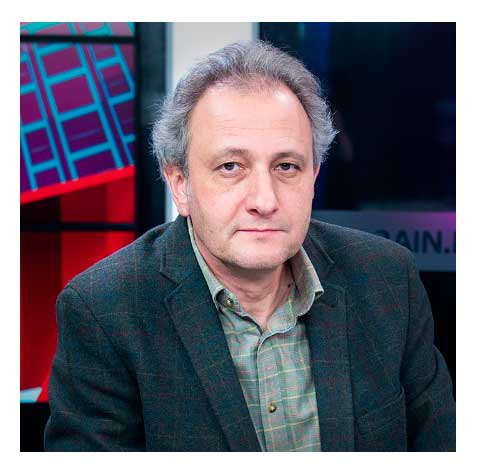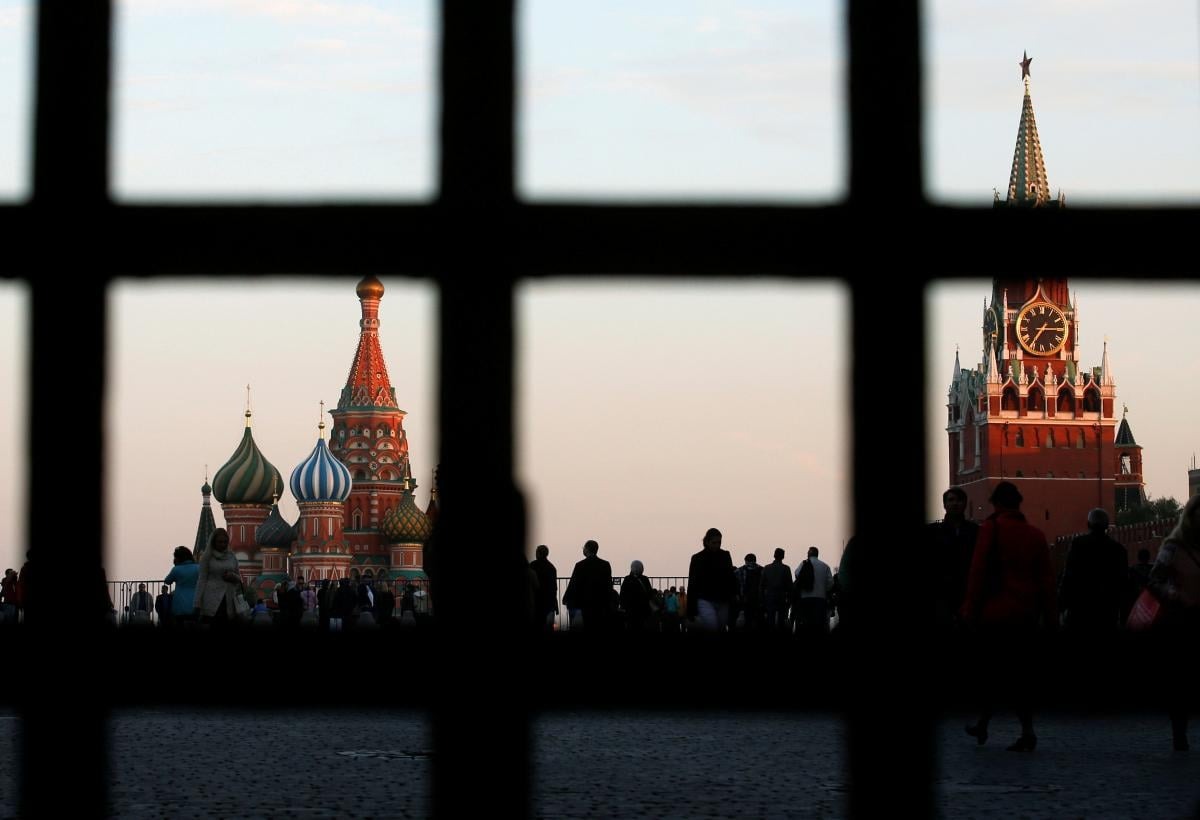«These numbers are worse than counter-revolution».
Joseph Stalin, from a speech at the XIV Congress of the CPSU (b) December 18, 1925
«We have no other numbers. Comrade Starovsky is a very cautious person».
Nikita Khrushchev, from a speech at the Presidium of the CPSU Central Committee August 19, 1964
«I award you the Order of Lenin for the ability to provide a socialist number».
Vladimir Starovsky, head of the USSR Central Statistical Office (1957–1975)
 The wave of deprivatization is proceeding to such an extent that it has become a routine informational background, like the announcement of new «foreign agents» or new political sentences with huge terms. Nationalization has an ideological character, which is not hidden: almost the entire economy of the country is declared strategic; if suddenly owners with foreign citizenship are discovered, this becomes a reason for nationalization, and in general, the basic message is that private property cannot be inviolable, and it is better if it is under state control.
The wave of deprivatization is proceeding to such an extent that it has become a routine informational background, like the announcement of new «foreign agents» or new political sentences with huge terms. Nationalization has an ideological character, which is not hidden: almost the entire economy of the country is declared strategic; if suddenly owners with foreign citizenship are discovered, this becomes a reason for nationalization, and in general, the basic message is that private property cannot be inviolable, and it is better if it is under state control.
Of course, the state is unable to manage all the property falling into its hands, and the next steps will be its transfer to new «owners» who have earned the trust of the authorities. Politically loyal figures will receive already operating enterprises, into which huge investments have been made, where jobs have been created, sometimes high-tech, for free. And those who built it with their labor can go into the woods, if not to the logging site. This is the second redistribution of property after the first, when there was an «equal removal of oligarchs» and the symbolic arrest of Mikhail Khodorkovsky. He stole oil from himself, now owners are discovered who stole strategic macaroni from themselves. The efficiency of enterprises taken away and redistributed in this way will naturally fall, and Russia will turn into a country with a non-existent investment climate.
Finally, the process of revising the very foundations of the capitalist economy and market, which until now ensured the stability of the Putin regime and supplied goods and food to the population, is also a literal rewriting of history. The recent history of Russia, within which until recently the construction of an effective market economy in the country was recognized as fundamentally fair. This is exactly what the Putin regime does with history, simultaneously mythologizing it in textbooks and reshaping it «on the ground» and in contour maps.

But by rewriting the past through deprivatization, the authorities are reformatting the future. The model «Russia against modernization» (A. Etkind, recognized as a foreign agent) is expressed not only in the archaization of the economy (its militarization and nationalization); social relations (heroization of death, routinization of violence, normalization of xenophobia); state practices becoming prohibitive and repressive; the educational system (indoctrination with Putinism), but also in maintaining the old energy model, in conscious neglect of ecology.
The hostilities themselves, which have been conducted with great intensity for three years, inevitably affect the ecological and climatic balance. They certainly leave both a carbon and any other trace that will negatively affect the habitat at least in Eastern Europe.
The property of authoritarian thinking in general is not to consider climate and environmental problems significant. Before the «special operation», Putin himself made a small evolution from jokes about the benefits of warming in a cold country to attempts to officially engage in climate and decarbonization agendas. Although he rather did this reluctantly, considering what was happening simply a fashionable Western trend, something like political correctness and the multiplication of the number of genders. February 2022 made all these games around the climate unnecessary and uninteresting for the Russian political regime. And here is new confirmation of the ironclad nature of such a position: the domestic Ministry of Natural Resources and Roshydromet published a report according to which in the conditions of sanctions, decarbonization of Russia is impossible and economically unprofitable. And therefore, Russia emitted greenhouse gases and will continue to emit them. The West, which imposed these very sanctions, is of course to blame for this within the framework of the concept of whatabout’ism.
The future is once again aborted. However, not only for Russia itself, but for the whole world — gases are emitted, according to the logic of the report, in retaliation for the sanctions regime. Let the ozone hole grow, let winters be snowless, and summers tropical in the middle zone, we are not to blame. A wonderful excuse for refusing to modernize the energy model. There is enough gas and oil for Putin and his team for a century, and after us, the deluge. Moreover, judging by the climate changes that have accelerated sharply in the last three years and are breaking all possible records, the deluge in the literal sense of the word. True, the outdated energy model is already failing — revenues from gas exports are falling, as is oil exports, the price of coal is decreasing, the coal industry is in crisis. From which, in fact, the receipt of profit tax falls. Maybe we should still think about the fact that the source of both Brezhnev's and Putin's prosperity is not eternal?
But we have economic growth of more than four percent, as Prime Minister Mikhail Mishustin, who has outlasted both the autocrat's term reset and COVID, and the SVO, reported to Putin. The head of government demonstrated to the country and the world not a wristwatch at the price of the average salaries of Russian workers for several years, but a mysterious massive bracelet. Quite a talisman against bad Rosstat data, whose leadership has long been able to hang on the facade of the Le Corbusier building on Myasnitskaya a crimson quote from academician S.G. Strumilin: «Better to stand for high growth rates than to sit for low ones». In the case of Stanislav Gustavovich, this justified itself, he lived 96 years.
However, in his office, Mishustin could hang the same dazibao. Unfortunately, the slogans «Emission is the opium for the national economy» and «Inflation does not create jobs» have long disappeared from the reception of the Minister of Finance of the Russian Federation. It is precisely the emission coupled with the titanic budget expenditures that gives impetus to unproductive and structurally unhealthy growth in the conditions of «military Putinism». In addition, it is believed that in a situation of labor shortage, the problem of jobs does not arise — they exist, there would be workers. Although labor market specialists are already warning: overproduction of tech-engineers and workers — graduates of «colleges» (that is, vocational schools) will lead to unemployment in the medium term. Even a barracks state will not digest so many technically oriented workers, especially if the hot phase of the SVO ends.
Putin can console himself with the illusion of GDP and industrial production growth, especially comparing Rosstat's numbers with the indicators of some European countries. Which, however, do not engage in hostilities, do not emphasize the military-industrial complex and defense spending, and do not pump oil. But in Putin's Russia, unlike those same European countries, what the national economy and, most importantly, the consumer need did not grow. The production of «finished metal products» grew by 49.6% in 2024. And what kind of products these are, even a primary school student knows, filling his drawing album with explosions and tanks. If what was needed grew, and people occupied those jobs that other people needed, the supply would satisfy demand, and inflation, the official indicators of which the government tries to keep in a single-digit figure, would be lower. The average salary in 2024 increased by more than 8 percent, and consumer inflation (not the one Mishustin reports to Putin) — by 14.2%.
The stagnation of real disposable incomes, which also grew by more than 8% last year (salaries are only part of the indicator), has greatly worried the Russian authorities since 2014: the connection between the annexation of Crimea, the accompanying political freezes, and economic problems was obvious. And the SVO, thanks to budget stimulus, gave a boost to the overall indicators of GDP and production growth, and income and salary (albeit with a methodology for calculating real incomes changed even before 2022). But the «special operation» spun inflation and broke the relatively balanced structure of the economy and labor market. Not to mention the difficulties that may arise when straightening the curved structure, where the military sector prevails over the civilian. Once the Russian economy has already gone through this, Yeltsin and Gaidar were to blame for everything, not those who for decades bent this structure in favor of the military sectors.
And who are they, our leaders, deceiving — each other or the Russian citizen who goes to grocery stores and also receives a «housing bill», the cost content of which has doubled over the year?
By rewriting the past, the authorities are rewriting the future, returning the country, including in terms of the structure of the economy, to those times when the lag behind the same West was too noticeable. To the question «Why?» there is always an answer: for the sake of «sovereignty» and «thousand-year history of Russia». Does it still sound convincing?
* Andrey Kolesnikov is considered a «foreign agent» by the Ministry of Justice of the Russian Federation.
Photo: REUTERS / Maxim Zmeyev / File Photo.